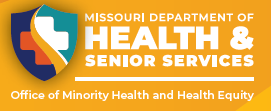October 31, 2025

Webinar: From Data to Decisions: How AI Command Centers Enable Safer, Smarter Health Systems, November 12
Health system leaders face a familiar bind: patient acuity risk is rising; CMS penalties are looming, and budgets are tight – but the data to manage it all lives in silos.
This webinar explores a practical answer: AI-powered command centers that unify real-time data into a single source of truth. Leaders get an executive-ready view of clinical risk, performance and ROI, enabling faster decisions, targeted resource deployment and measurable improvement across facilities and service lines.
Key Learnings Include:
- How to optimize an executive-ready command center to monitor risk and performance across units in real time,
- How to direct resources to the highest-impact areas to reduce adverse events and protect CMS scores, and
- How to sustain improvement with clear governance, front-line workflows and systemwide accountability.
Cost: Free
When: Wednesday, November 12, 12:00 p.m. – 1:00 p.m.
Click Here to Register



